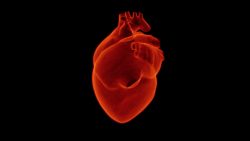Does Ketamine Cause Cardiac Arrest?
In spite of it’s reputation as a “date rape” drug, ketamine actually offers certain medical benefits as an surgical anesthetic agent. Since ketamine can be used for medicinal purposes, it’s classified as a Schedule III controlled substance rather one of the more dangerous Schedule I narcotics like heroin.
When used for recreational purposes, ketamine causes the mind to lose its grip on reality and enter into hallucinatory realm, according to the U. S. Drug Enforcement Administration. These same effects not only alter a person’s state of consciousness, but also impacts the body’s cardiovascular system as well as other major systems.
Ketamine’s ability to interfere with cardiovascular functions does come with considerable risks, one of which being cardiac arrest.
Call toll-free at 800-915-1270 (Sponsored) to ask about ketamine addiction treatment options.
Ketamine’s Mechanism of Action

Ketamine abuse can lead to numerous heart complications.
Ketamine’s effects develop out of changes in the brain’s glutamate neurotransmitter levels. Glutamate chemical levels work to maintain a normal level of activity between the brain’s cells. This process enables the brain and body to communicate with one another on a continuous basis.
Ketamine essentially blocks glutamate production rates and so slows cell activity in the brain. These effects also block communications between the brain and central nervous system which accounts for why this drug works well as an anesthetic.
In effect, ketamine’s mechanism of action within the brain can cause real problems when taken in large amounts, so cardiac arrest is definitely possible.
Ketamine Effects on Heart Function
Ketamine’s ability to interfere with glutamate production naturally disrupts the brain’s electrical activity. Considering how nerve impulses rely on a stable level of electrical activity to function normally, this level of interference hampers the brain’s ability to communicate with the cardiovascular system.
According to the British Journal of Anaesthesia, ketamine’s effects can interfere with heart function in different ways depending on how a person’s system reacts to the drug. These effects can take the form of:
- Tachycardia, which is an abnormally fast resting heart rate
- Heart palpitations, which is an irregular heartbeat
- Increase in blood pressure
- The heart works harder than it should
With chronic ketamine abuse, one or more of the above symptoms can escalate to the point where cardiac arrest occurs.
Serious Physical Reasons why You Need Ketamine Addiction Treatment
Long-Term Effects
Ketamine’s effects on the heart can have long-term consequences for people who use this drug on a regular basis. According to the Journal of Advances in Clinical Toxicology, the brain’s inability to communicate with the cardiovascular system as normal takes a toll on the heart over time.
The extra work done by the heart eventually starts to damage the cells and tissues that make up the heart muscle. This condition will continue to worsen with ongoing ketamine abuse. As the heart’s functional capacity weakens, the likelihood of cardiac arrest increases.
Treatment Considerations
Unlike other types of hallucinogen drugs, the brain develops a tolerance for ketamine at a rapid rate. This means a ketamine abuse problem can easily spin out of control when using this drug on a repeated basis. Under these conditions, the risk of going into cardiac arrest increases exponentially.
If you’re struggling with a ketamine abuse problem and need help finding treatment, call toll-free at 800-915-1270 (Sponsored) to learn more about your treatment options.
 Am I at Risk of Ketamine Bladder Syndrome? Signs to Watch for -
Know the warning signs of ketamine bladder syndrome so you can get needed treatment and overcome ketamine abuse.
Am I at Risk of Ketamine Bladder Syndrome? Signs to Watch for -
Know the warning signs of ketamine bladder syndrome so you can get needed treatment and overcome ketamine abuse.  Ketamine Long Term Effects You Should Be Aware Of -
Find out about the myriad of long term effects ketamine abuse can cause
Ketamine Long Term Effects You Should Be Aware Of -
Find out about the myriad of long term effects ketamine abuse can cause  Does Ketamine Cause Drug Psychosis Symptoms? -
By understanding how ketamine affects the brain, you'll see how this drug can cause the various symptoms that are associated with psychosis.
Does Ketamine Cause Drug Psychosis Symptoms? -
By understanding how ketamine affects the brain, you'll see how this drug can cause the various symptoms that are associated with psychosis.  Teenage Ketamine-Alcohol Fatality Risks & the Need for Treatment -
Learn the common signs of a ketamine high, and lifestyle changes that often occur with ketamine and alcohol use, so you can determine whether your teen needs treatment help.
Teenage Ketamine-Alcohol Fatality Risks & the Need for Treatment -
Learn the common signs of a ketamine high, and lifestyle changes that often occur with ketamine and alcohol use, so you can determine whether your teen needs treatment help.  10 Dangers of Ketamine to Be Aware Of -
Ketamine is a high risk drug that carries with it a variety of dangerous effects
10 Dangers of Ketamine to Be Aware Of -
Ketamine is a high risk drug that carries with it a variety of dangerous effects